Disability Politics in Mexican and Transnational Contexts
When and Where
Speakers
Description
Join us for a two-presentation panel on Disability Studies to welcome the visit of two colleagues from 17, Instituto de Investigaciones Críticas in Mexico City.
About the First Presentation:
The Blind Photographer Illuminates: Disability Studies at 17, Institute of Critical Studies, Mexico City
by Benjamin Mayer-Foulkes and Beatriz Miranda-Galarza
17, Instituto de Estudios Críticos was established in Mexico City in 2001. Its founding trope was the Blind Photographer. Widely interdisciplinary and multiply concerned with scholarly, cultural, and editorial endeavors, over the last two decades the Institute has established the first Spanish-speaking accredited postgraduate programs in Critical Theory, a Center for Advanced Studies, a publishing house, a consultancy, and an online radio station. More recently, it has also given forth to a mechanism designed to provide support to members of the academic, cultural and social communities and their initiatives within and beyond Latin America. Why and how has the Institute continuously incorporated disability-related motifs? And what has been the resulting character of its formal investigative and creative engagements in the field of Disability Studies? These questions will be addressed by its founding director and the head of its Disability Studies Department.
For further reference:
Deaf and Disability Arts in the Americas (2021)
Towards the Post-University: Experimenting with Psychoanalysis and Institutions (2014)
Websites: 17edu.org, diecisiete.org
About the Second Presentation:
Cuidar desde lejos: Migration, Care, and Spirituality in Disabled Families
by Beatriz Miranda-Galarza
On July 16, Luz Raquel Padilla, mother of a young man with autism, was burned alive in Mexico. Neighbours, who could not stand the noises her son made, had threatened several times to kill her or her son. The crime was presented by the media as the murder of a caregiver mother, while some called it a feminicide. Little was mentioned about the presence of her son with autism. Padilla belonged to a group of women called “Yo cuido México” (I care Mexico). This horrific event made me think about the dangers that we face as caregivers in families with disabilities, and the strategies to face these dangers, including spiritual support. In this presentation I will invite the audience to accompany me on a personal journey, one I am sure is reflected in the lives of many family members of people with disabilities, some who have had to migrate and try to serve as caregivers from afar.
About the Presenters:
Benjamin Mayer-Foulkes has practiced psychoanalysis in Mexico City for the past 25 years. He is the founding director of 17, Instituto de Estudios Críticos. He obtained his PhD in Philosophy from the National University of Mexico (UNAM). He is one of the international experts on blind photography and a cofounder of Sentire, a Mexican ensemble that brings together musicians and deaf actors. He has lectured at many universities in Latin America, North America and Europe. He is a close collaborator of the Institute for Critical Studies in Improvisation at the University of Guelph and is currently an O’Gorman Senior Research Associate at Columbia University.
Beatriz Miranda-Galarza is an Ecuadorian sociologist and anthropologist. She holds a PhD in Disability Studies (Leeds University, England) and has 30 years of experience in social and community research linked to disability and health. She published the book Nuestra historia no es mentira. Vivir con Lepra en Ecuador, and co-edited the book Rethinking Disability. World Perspectives in Cultures and Societies. She is the coordinator of the Critical Disability Studies Programme at 17, Instituto de Estudios Críticos where she has implemented projects related to arts and disabilities and a Certificate in Critical Disability Studies. She is currently preparing a book about the history of the disability movement in Mexico.
About the Venue:
Venue is wheelchair accessible, with accessible washrooms in same floor. For other access requests, please contact the organizer (info below) - preferably before Wednesday, October 12 so we can accommodate your needs.


